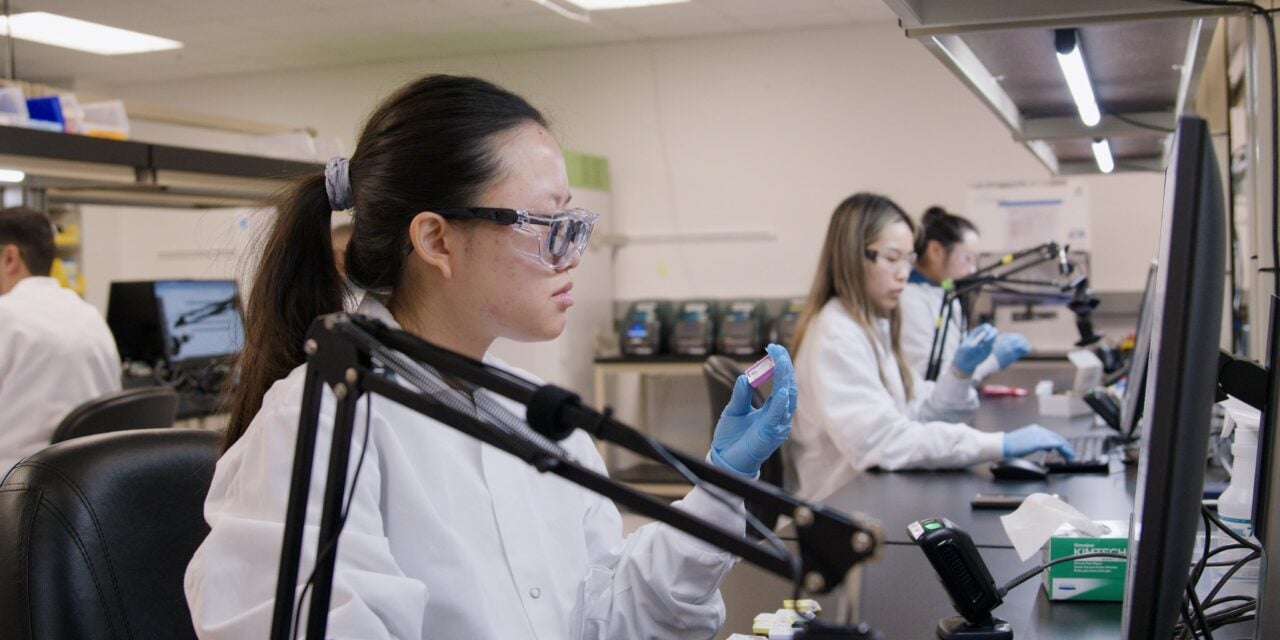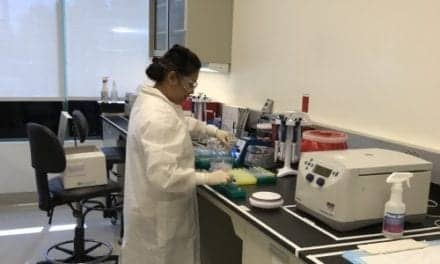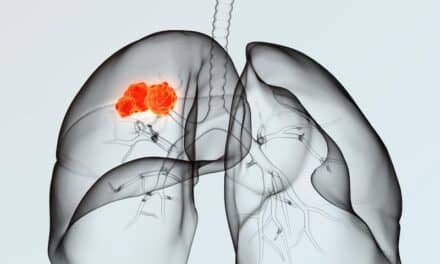The test demonstrated higher baseline sensitivity for ctDNA detection compared to gene mutation-based testing in AstraZeneca’s NeoADAURA study.
Personalis Inc announced new data from AstraZeneca’s phase 3 NeoADAURA lung cancer trial showing its NeXT Personal molecular residual disease (MRD) test demonstrated superior sensitivity and prognostic value in patients with early-stage non-small cell lung cancer (NSCLC) receiving neoadjuvant therapy.
The findings, which will be presented at the IASLC 2025 World Conference on Lung Cancer in Barcelona, Spain, show NeXT Personal provides significantly higher baseline sensitivity for circulating tumor DNA (ctDNA) detection compared to another gene mutation-based test in patients with stage II-IIIb, EGFR-mutated NSCLC.
The ultra-sensitive, tumor-informed liquid biopsy test also demonstrated strong prognostic capabilities, with baseline MRD status serving as a predictor of clinical outcomes across all treatment arms in the study. Pre-surgical MRD negativity and clearance on the NeXT Personal test correlated with major pathological response.
“This study from AstraZeneca shows that ultra-sensitive ctDNA detection enabled by NeXT Personal is critical for accurately assessing neoadjuvant treatment response,” says Richard Chen, chief medical officer and executive vice president of research and development at Personalis, in a release. “It also highlights how more-sensitive detection of ctDNA can unlock crucial insights in the neoadjuvant setting.”
Clinical Utility for Treatment Monitoring
The NeoADAURA trial data showed osimertinib-containing regimens improved pre-surgical MRD clearance versus placebo and chemotherapy, demonstrating the utility of ctDNA monitoring for assessing neoadjuvant therapy response. The global, randomized, placebo-controlled study evaluated neoadjuvant osimertinib with or without chemotherapy versus placebo plus chemotherapy in patients with resectable EGFR-mutated NSCLC.
The results build on previous collaborations between Personalis and AstraZeneca, including a recent publication from the phase 3 CALLA cervical cancer study showing NeXT Personal detected traces of cancer DNA up to approximately 16 months ahead of standard imaging.
Medicare Coverage Submission
The data presentation follows Personalis’ recent submission for Medicare coverage of its NeXT Personal liquid biopsy test for lung cancer patients. This represents the third indication for which the company is seeking coverage for its whole-genome-based, tumor-informed MRD and recurrence test.
The Fremont, California-based company’s NeXT Personal test combines tumor- and normal-profiling with proprietary algorithms to detect minimal residual disease and recurrence. The platform is designed to provide insights for treatment selection based on genomic profiling and enhance biomarker strategy for drug development.
Photo caption: Personalis employee holding up sample
Photo credit: Personalis





